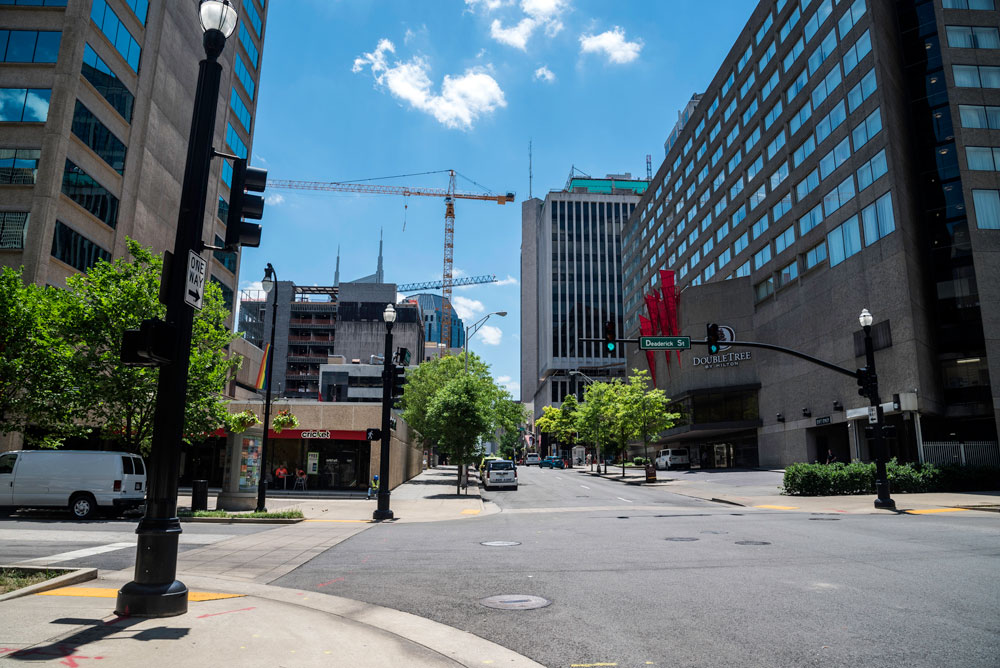
March 16, 2020; Nashville Tennessean
The numbers are so enormous that it can be hard to fathom the daily impact of the coronavirus-induced recession hitting communities across the globe, but writing in the Tennessean, reporter Jamie McGee provides a picture of how the shutdown is affecting the city of Nashville.
Nationally, as NPQ noted, the hospitality industry employs 14.3 million. Of those, as McGee points out, more than 120,000 work in Nashville. Many of those workers rely heavily on tips, “a source of income that has been decimated by the coronavirus outbreak.”
To date, “there have been more than 235 meeting and group cancellations in Nashville, representing more than 180,000 room nights and $96 million in direct spending.” That $96 million, of course, is spending that typically helps ensure that servers, dishwashers, cooks, housecleaners, and concierge staff get paid.
Ryman Hospitality Partners, the Nashville-based company that owns Gaylord Opryland Resort and Convention Center, says it’s had 270,000 room night cancellations globally, reducing revenues by $132 million, about one-sixth of what it would normally expect to earn between March and December.
Sign up for our free newsletters
Subscribe to NPQ's newsletters to have our top stories delivered directly to your inbox.
By signing up, you agree to our privacy policy and terms of use, and to receive messages from NPQ and our partners.
A few owners have gone out of their way to support laid-off employees. McGee notes that “country singer-songwriter Dierks Bentley is giving each of his 90 employees $1,000 to help them while his Broadway restaurant Whiskey Row is temporarily closed.”
Tom Morales, an owner of The Southern and Acme Feed and Seed, says he is disappointed that the government has not focused enough on helping support workers. “What I want to hear is our leadership start addressing the common people who live on an hourly wage. They have to understand, we are not the auto industry sitting on billions of dollars.”
Stephen Grinder, a 31-year-old server at The Southern, observes, “Two or three weeks of this maybe is doable. Six weeks? I can’t do that.”
Rob Mortensen, CEO of the Tennessee Hospitality Association, notes the underlying fragility of his industry which the pandemic-induced shutdown has made acutely visible. “There are a lot of consequences to this,” Mortensen says. “Having our folks who live paycheck-to-paycheck, there is not a place for them to go to.”
What NPQ observed last year during the winter 2019 federal government shutdown is now far more widely visible. Workers aren’t the only ones who are vulnerable, however. As Mortensen points out, many restaurant owners who run smaller operations also face small margins and may be poorly positioned to survive an extended shutdown without support.—Steve Dubb













